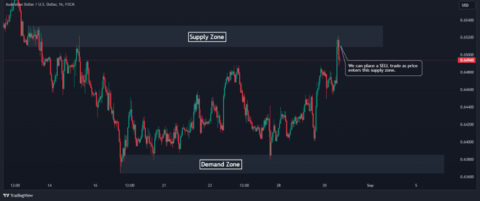Poor market timing can lead to significant setbacks, undermining even the most carefully built portfolios. The risks extend beyond missed profits, often resulting in losses that impact long-term financial goals. This downside emerges when investors miscalculate market movements, highlighting the importance of precision and restraint. Recognizing these risks helps investors avoid the costly pitfalls associated with inaccurate timing. How can investors avoid costly timing errors and find guidance without direct education? Profit Edge connects traders with firms specializing in expert insights, helping them steer clear of common pitfalls.
Emotional Decision-Making and Market Volatility: Exploring How Emotional Reactions Can Lead to Costly Missteps
Market volatility can cause investors to make emotional decisions, often leading to unintended losses. The stock market’s ups and downs are like a rollercoaster; when prices plunge, anxiety can take over, pushing investors to sell assets at a loss to “cut their losses.”
But this urge to react in the moment often disrupts long-term financial goals. Imagine standing at the edge of a pool, fearing the water is too cold—only to realize, after jumping in, that it’s perfectly fine. This hesitation, or premature action, commonly happens in investing when emotions overpower rational thinking.
When prices fall, fear tempts investors to offload stocks at low prices, aiming to avoid further losses. However, this often means locking in those losses, especially if the market rebounds shortly afterward.
Emotional reactions may also lead to “herd mentality,” where individuals follow what the majority is doing, regardless of whether it aligns with their financial plan. The irony? Many investors make these hurried moves precisely during times when market patience is most likely to pay off.
So, how can investors counter these emotional impulses? One effective way is by setting a clear plan that prioritizes research-based decisions over impulse. Financial advisors frequently recommend establishing a diversified portfolio to minimize the temptation to react emotionally.
Staying grounded by consulting professionals can help prevent these emotional pitfalls, protecting long-term goals from the unpredictable twists and turns of market sentiment.
Opportunity Costs of Staying Out of the Market: Examining Potential Missed Gains When an Investor Waits on the Sidelines
When investors stay on the sidelines during turbulent times, they often miss potential growth opportunities. This hesitation can carry a hidden cost known as “opportunity cost.”
Simply put, it’s the lost potential of what could have been gained by participating in the market instead of waiting it out. Picture this like skipping a summer BBQ because of cloudy skies, only to realize later that it was a sunny day after all.
One key example of opportunity cost is missing out on “rebound gains” following a market dip. Historical data shows that markets often recover quickly after downturns, and those who stay invested generally benefit from these recoveries.
For instance, after the market downturn in March 2020, major indexes bounced back significantly within a few months. Those who stayed invested saw considerable gains, while those on the sidelines missed a powerful comeback.
Holding off on investments may feel safer, but it doesn’t protect investors from inflation or offer the potential benefits of compound growth. A balanced approach, where investors maintain some exposure even in volatile times, can make a notable difference.
Advisors often suggest creating a plan that keeps long-term goals in sight rather than retreating during market downturns. This way, investors can avoid missed chances, ensuring their assets are well-positioned to benefit from market growth instead of being limited by short-term caution.
Historical Case Studies of Failed Timing Attempts: Real-World Examples of Investors Who Suffered from Poorly Timed Market Decisions
History is filled with examples of investors who attempted to time the market but ended up facing major setbacks. One notable example is during the 2008 financial crisis when many investors, driven by fear, sold off stocks as prices tumbled.
Those who panicked and sold during this period locked in substantial losses, only to watch the market recover and reach new heights over the next few years. It’s like abandoning a ship in rough waters, only to find it safely docked by the morning.
Another case occurred with tech stocks during the dot-com bubble in the early 2000s. Investors rushed to exit the market at the first signs of trouble, resulting in missed opportunities when the technology sector eventually rebounded with sustainable growth. While some dot-com stocks indeed faltered, others evolved into some of today’s most valuable companies. Those who mistimed their exits missed out on these longer-term gains.
More recently, during the COVID-19 pandemic, some investors liquidated their holdings due to economic uncertainty, fearing the worst for the market. Within months, however, markets rebounded, with some sectors even reaching all-time highs.
Timing the market is notoriously difficult, and these examples illustrate that the risk often outweighs potential short-term benefits. For investors, consulting with financial experts can prevent these costly mistakes, emphasizing a steady approach that balances caution with opportunities for long-term growth.
Conclusion
Poor market timing underscores the dangers of reacting impulsively to market shifts. Miscalculations can derail financial objectives, proving that success requires careful assessment rather than quick actions. Understanding these risks provides investors with a clearer view of the hazards of market timing, underscoring the importance of patience, disciplined planning, and realistic expectations for steady returns.

Daniel J. Morgan is the founder of Invidiata Magazine, a premier publication showcasing luxury living, arts, and culture. With a passion for excellence, Daniel has established the magazine as a beacon of sophistication and refinement, captivating discerning audiences worldwide.





